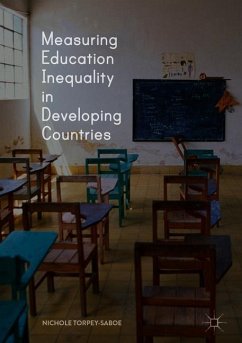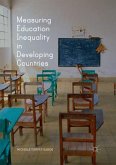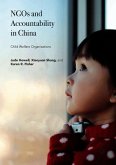This book constructs a measure of education inequality using time-series cross-national data and utilizes real-world examples based on author interviews. It provides insights into how classic trade theory might be applied more broadly to generate expectations not only about income distribution, but also about investment in human capital. The project explores the ways in which global trends toward urbanization and democratization might be expected to impact education inequality. The author addresses contemporary issues in politics, such as growing income inequality, the backlash against globalization and free trade, and concerns that democratic institutions are elite-dominated and unresponsive to the needs of common citizens.
Bitte wählen Sie Ihr Anliegen aus.
Rechnungen
Retourenschein anfordern
Bestellstatus
Storno








